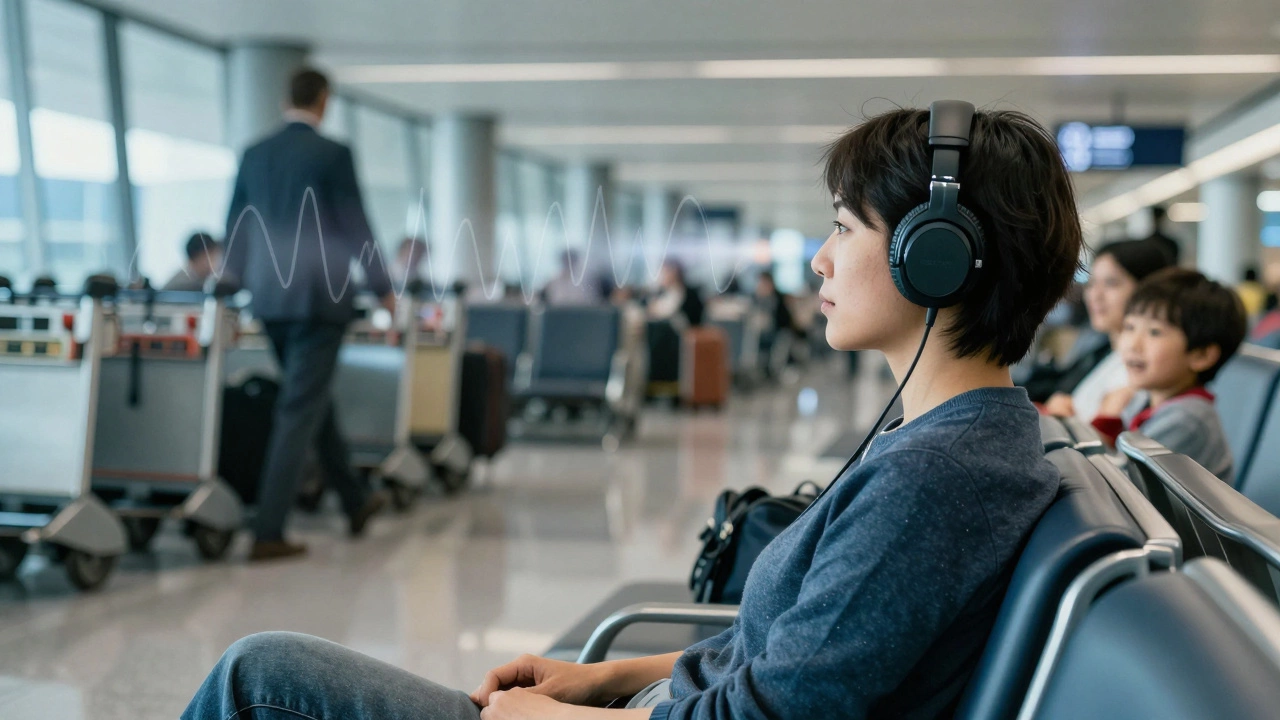Looking for a new pair of headphones? You’ve probably seen terms like "noise cancelling," "on‑ear," and "over‑ear" thrown around a lot. It can feel overwhelming, but you don’t need a tech degree to pick the right set. Below we break down the main choices, explain how the technology works, and give you practical tips to keep your ears safe.
On‑ear headphones sit on the outer rim of your ears. They’re lighter and pack into smaller bags, so they’re great for commuters and gym‑goers. The downside? They don’t block as much outside noise, so you may need higher volume to drown out traffic.
Over‑ear models hug the entire ear and create a seal that naturally cuts down background sound. This seal makes active noise cancelling (ANC) more effective, and you can often listen at lower volumes. The trade‑off is size – they’re bulkier and can feel warm after long sessions.
Pick on‑ear if you value portability and don’t mind a little ambient noise. Choose over‑ear for the best isolation, especially if you plan to use ANC for flights or open‑plan offices.
Noise reduction is a passive approach. It relies on the shape of the ear cup and padding to block sound. Think of it as “turning down the volume of the world” without any electronics involved.
Noise cancelling, on the other hand, uses built‑in microphones to sense external sound and creates an opposite sound wave that cancels it out. This active process can erase low‑frequency hums like airplane engines, while higher‑frequency chatter may still slip through.
Both methods have their place. If you mostly need to mute steady background noise, passive reduction might be enough. For variable or low‑frequency sounds, ANC gives a noticeable edge.
Many people worry that blocking out the world could harm hearing. The truth is, damage comes from volume, not the type of isolation. When headphones block noise, you naturally lower the volume, which is healthier for your ears.
Still, keep an eye on the level. A good rule of thumb is the 60/60 rule: no more than 60 % of maximum volume for no longer than 60 minutes at a stretch. Take breaks, especially with snug over‑ear models that can create pressure.
If you experience ringing, headaches, or ear fatigue after a few minutes, try lowering the volume or switching to a model with a more open design. Some users find that on‑ear headphones feel less “closed in,” which can reduce pressure‑related discomfort.
Finally, keep the headphones clean. Earwax and sweat can degrade sound quality and irritate the skin. A quick wipe with a dry cloth after each use goes a long way.
In short, the best headphones are the ones that match your lifestyle, give you the right amount of isolation, and keep your listening levels safe. Whether you choose a compact on‑ear pair for the gym or a plush over‑ear set for work‑from‑home focus, you now have the tools to make an informed decision.

Noise cancelling headphones offer peace but come with hidden downsides - from dizziness and hearing risks to reduced situational awareness. Learn the real cons you won't find in ads.

Noise cancelling headphones don’t block all sound - and that’s by design. Learn why you can still hear speech, breathing, and sudden noises, and how ANC really works in real-world conditions.

Noise-cancelling headphones aren't always safe or appropriate. Learn when to avoid them-like while driving, walking in traffic, or having conversations-to stay safe and socially aware.

Which is better for noise cancelling: on-ear or over-ear headphones? Dive into real user insights, data, and expert tips for choosing the best style.

Ever asked yourself why some headphones just muffle background buzz while others almost erase it? This article digs deep into the real differences between noise reduction and noise cancelling. You'll find out how each tech works, where they shine, and get some quick tips to pick what truly fits your lifestyle. If you've ever felt confused at the store, this clears things up for good. Say goodbye to second-guessing your next audio buy.

Are noise-canceling headphones a savior for our ears in this noisy world, or are they stealthy conspirators teaming up with tinnitus? As more of us are turning to these gadgets to block out the chaos of daily life, it's crucial to know how exactly they affect our ears. We'll dig into how they work, whether they help or harm your hearing, and share some handy tips for using them wisely.

Explore the surprising effects of noise-canceling headphones on the brain. Understand how they can enhance focus, reduce stress, and improve auditory health. Discover intriguing facts about the science behind noise cancellation and practical tips for daily use. Learn the reasons these devices have become a game-changer for many users.